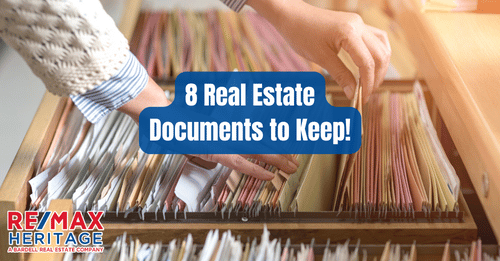
by Elsa Soto | Jan 13, 2023 | Blog, Homeowners, Homes, Villas and Condos, Investment Property in Florida, News, Property Management, Renters
How to Find Investment Properties How to Find Investment Properties There is no right or wrong way to find investment properties, but knowing how to find investment properties can speed up the process of establishing your business. In this article, we share the...

by Elsa Soto | Jan 11, 2023 | Blog, Buyers, Homeowners, Homes, Villas and Condos, News, Real Estate News, Sellers
8 Real Estate Documents to Keep 8 Real Estate Documents to Keep After a real estate sale, there are a lot of documents to organize. But do you have to keep them all? After all, you don’t want to have to file all of it if you don’t have to; but you also don’t...

by Elsa Soto | Jan 10, 2023 | Blog, Homeowners, Homes, Villas and Condos, News, Real Estate News, Sellers
When Is the Best Time to Sell Your House? When Is the Best Time to Sell Your House? Timing can make a big difference in terms of selling your home quickly and for the most cash. But here’s the thing: The rules on pinpointing that best time might not be what you think....

by Elsa Soto | Jan 6, 2023 | Blog, Long Term Rental, News, Property Management, Renters
Everything to Know About Move-In Fees Everything to Know About Move-In Fees Landlords are responsible for determining what fees tenants will pay to help cover the costs of maintenance, repairs, and other expenses associated with their rental — often in the form of a...

by Elsa Soto | Jan 4, 2023 | Blog, Buyers, Homeowners, Homes, Villas and Condos, News, Real Estate News, Sellers
How To Buy and Sell a Home at the Same Time How To Buy and Sell a Home at the Same Time Buying a house while simultaneously selling your current home is always a treacherous tight wire to traverse—but in today’s high-priced, high-interest-rate housing market,...

by Elsa Soto | Jan 3, 2023 | Blog, Buyers, Homeowners, Homes, Villas and Condos, New Construction, News, Real Estate News
Ways To Lower Cost of Buying New-Construction Home Ways To Lower Cost of Buying New-Construction Home While buying any home is an expensive endeavor these days, buying a brand-new home—where everything is in pristine condition—will understandably cost a bit...








